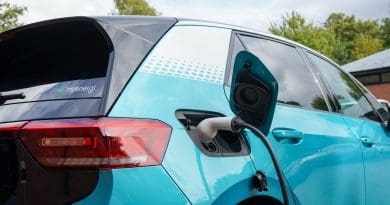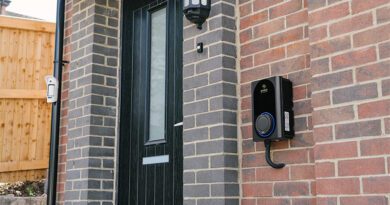Large amounts of excess power generated by the growth of renewable energy are being wasted, method to give residents of social housing free access to electricity.
An Irish social firm is set to provide free hot water to low-income households using surplus wind energy year across the UK and the Republic of Ireland
In order to heat hot water tanks overnight for inhabitants of social housing, EnergyCloud employs The programme will be implemented in 10,000 households in the Republic of Ireland this year following homes in 2022, in collaboration with the Irish housing charity Clid Housing.
“It’s looking at the social housing sector, at people who are in poverty, and thinking ‘how can they transition’,” says EnergyCloud founder Derek Roddy.
A trial of 300 homes in Northern Ireland is also scheduled to begin this year and work is underway England and Wales.
The plan involves installing a digital switch on a home’s hot water tank, which enables EnergyCloud heater anytime there is extra wind energy available on the grid.
It has agreements with electricity providers, cable owners, and grid operators that allow those residences instead of shutting down wind turbines.
Participating families are notified the night before that free hot water will be available overnight With the approach, wasteful usage of renewable electricity is avoided, gas use is decreased, and tank of hot water they receive.
“It is quite a simple solution with very few downsides,” says Jon Ferris at energy consultancy LCP Growing surplus
Grid operators are finding it difficult to determine what to do with excess power as electricity systems renewable energy.
According to energy giant Drax, the UK wasted enough renewable energy in 2020 and 2021 to power more green energy available than there was a need for it.
By the end of the decade, new offshore wind farms constructed in the UK might imply that 53% solar, and nuclear power exceeds the demand.
“Towards the end of this decade, the scale [of growth] in offshore wind is going to be really dramatic,” says John Radcliffe at the University of Birmingham. “So there will be massive amounts of power that’s being generated the demand.”
Although experts believe that demand from homes and businesses will need to become more responsive patterns, interconnectors and grid-scale energy storage will help to ease the situation.
This could entail setting up intelligent electric vehicle chargers that turn on when there is an abundance with thermal reserves so they can operate throughout the night.
“We’ve lost that concept of storing in the home, which is, actually, something that we might need to do” Says Radliffe.






